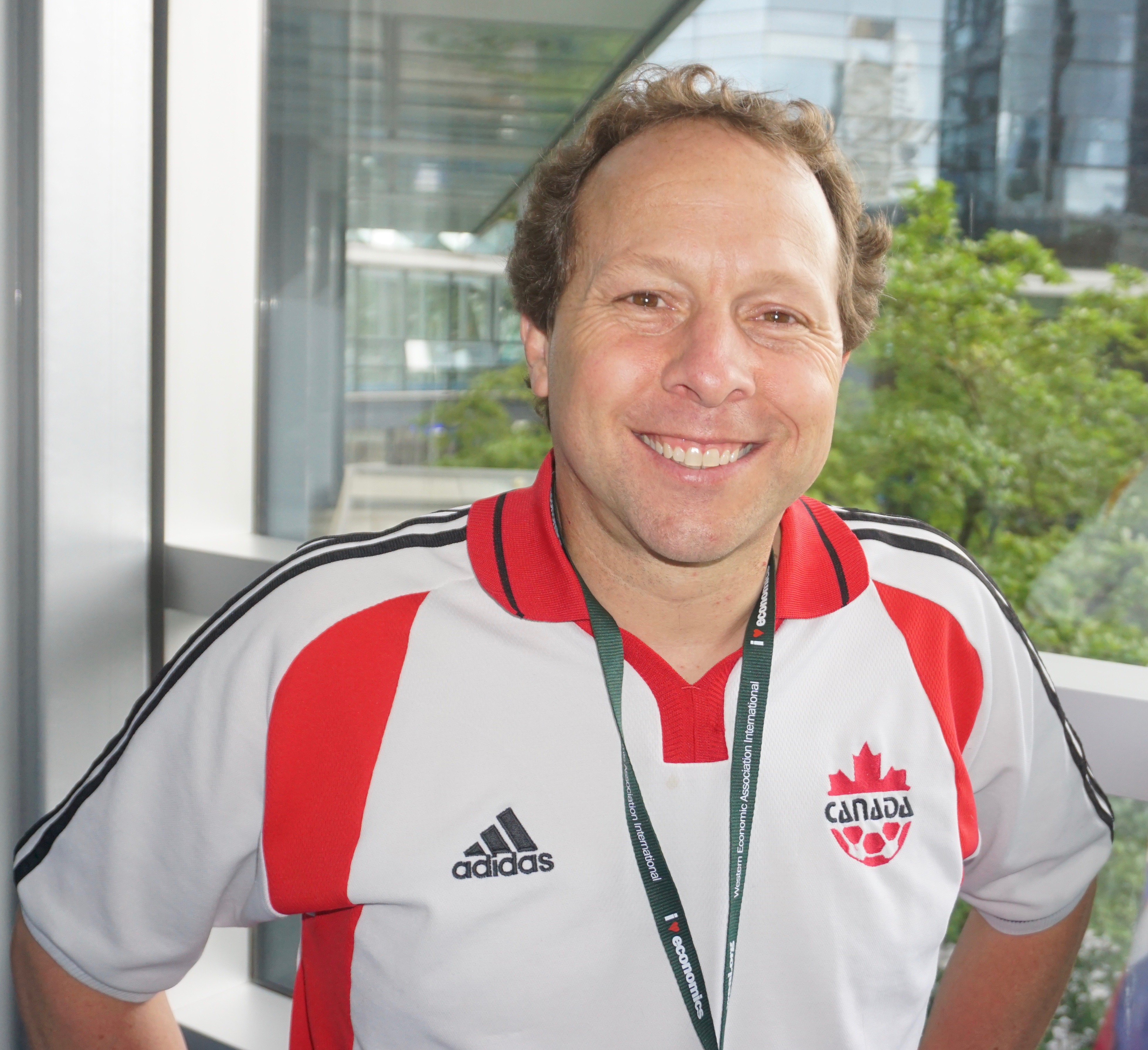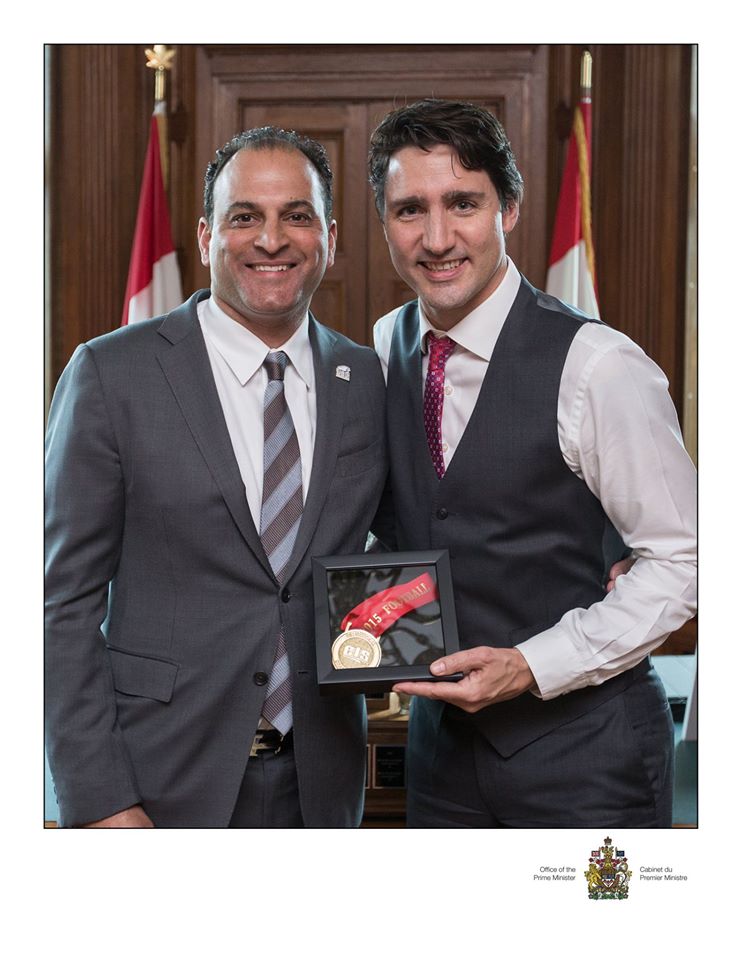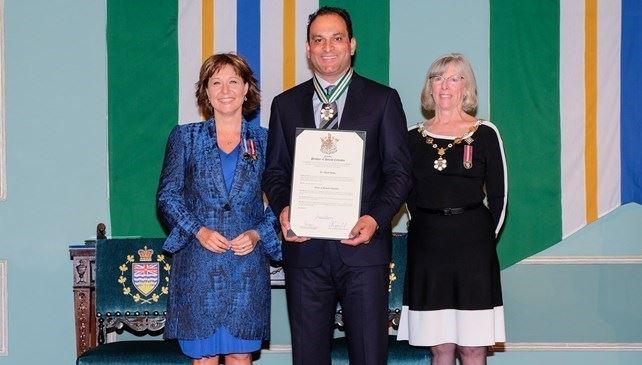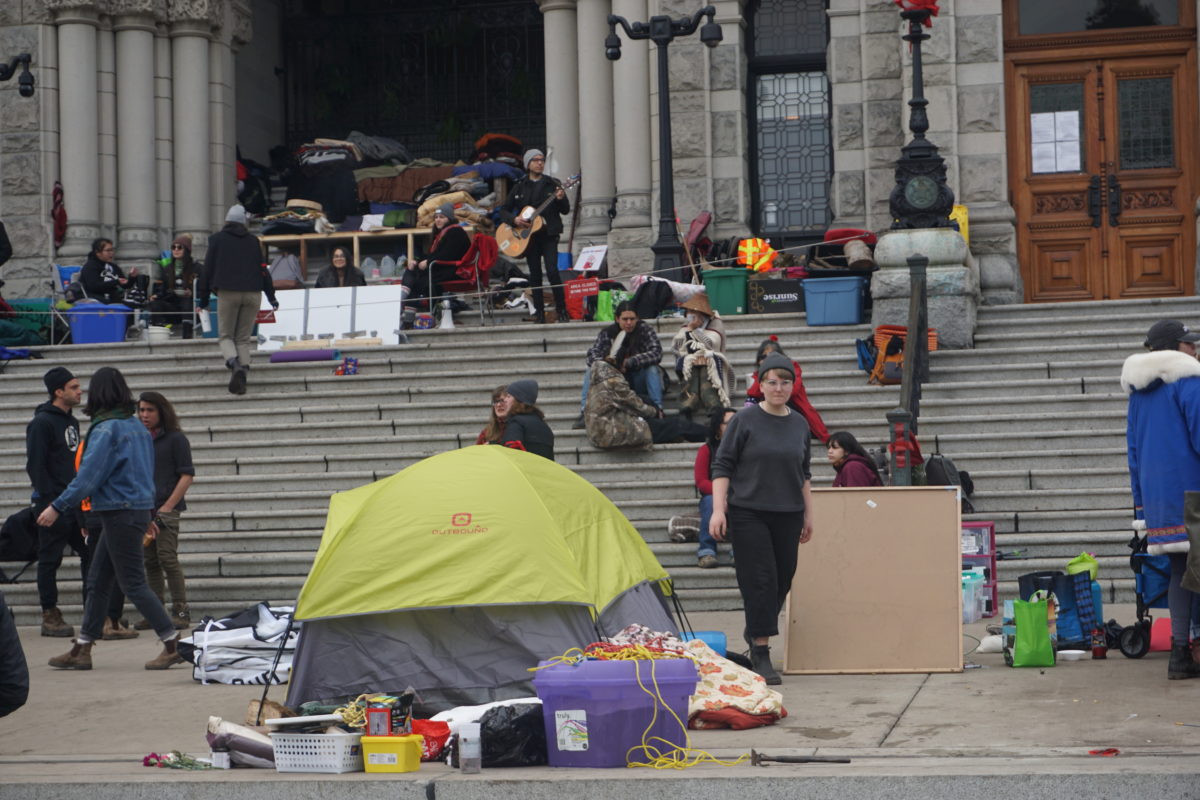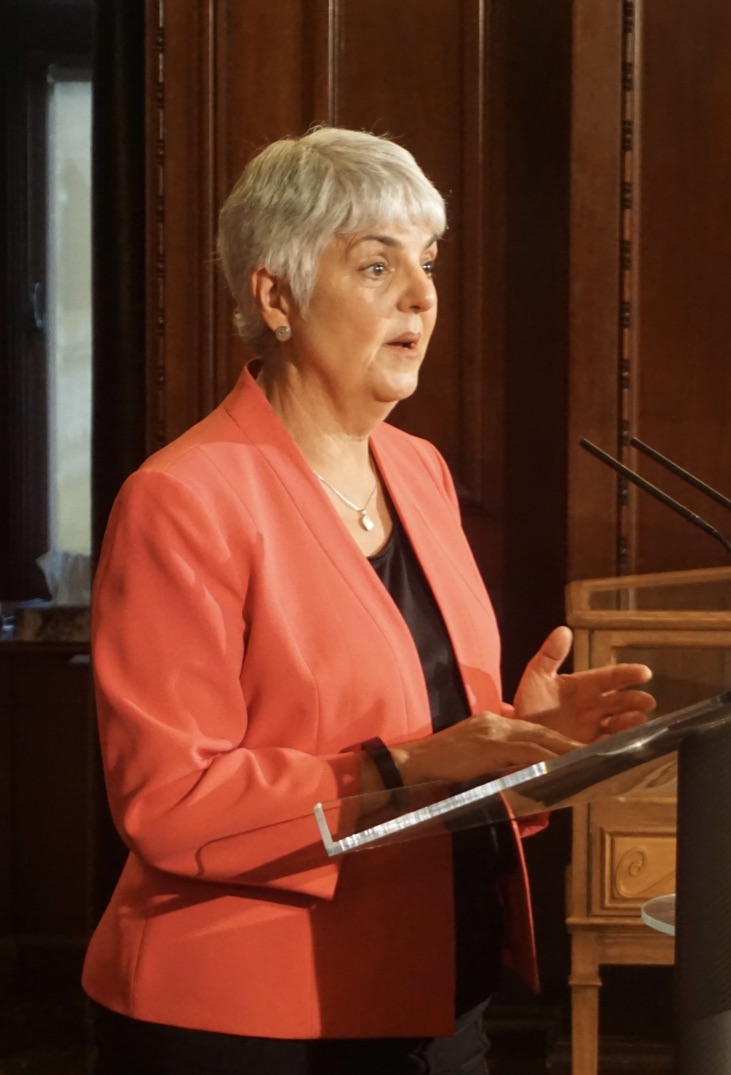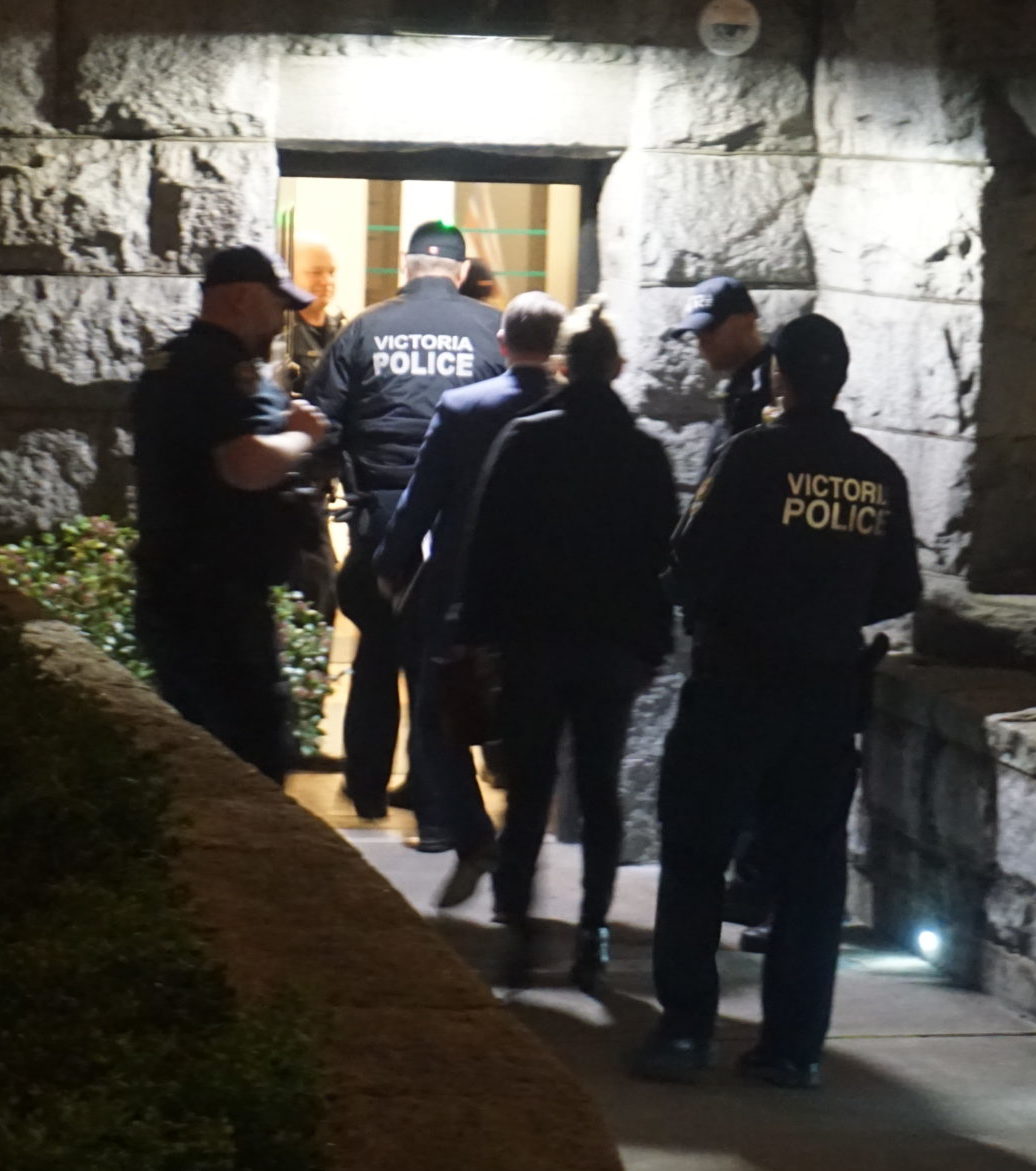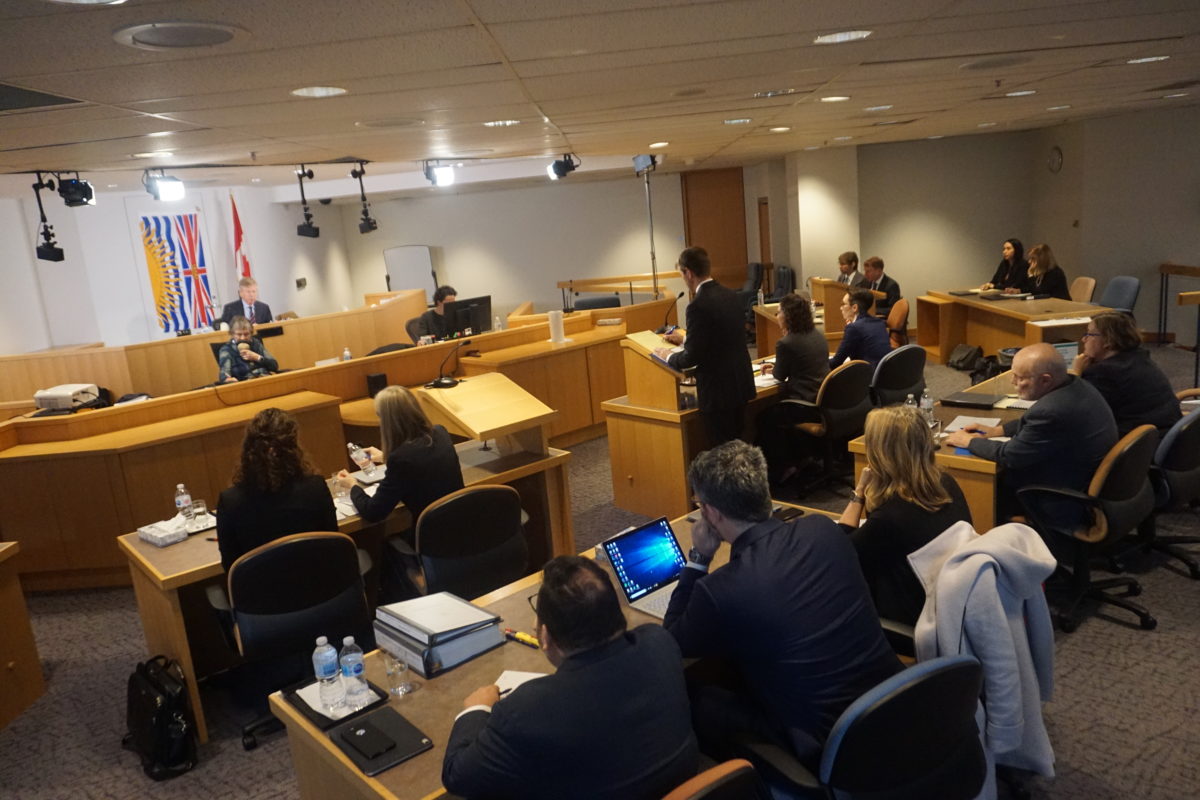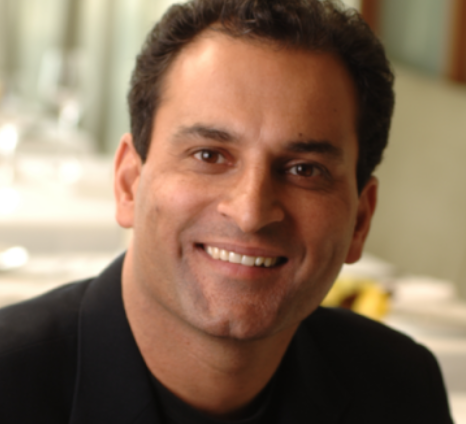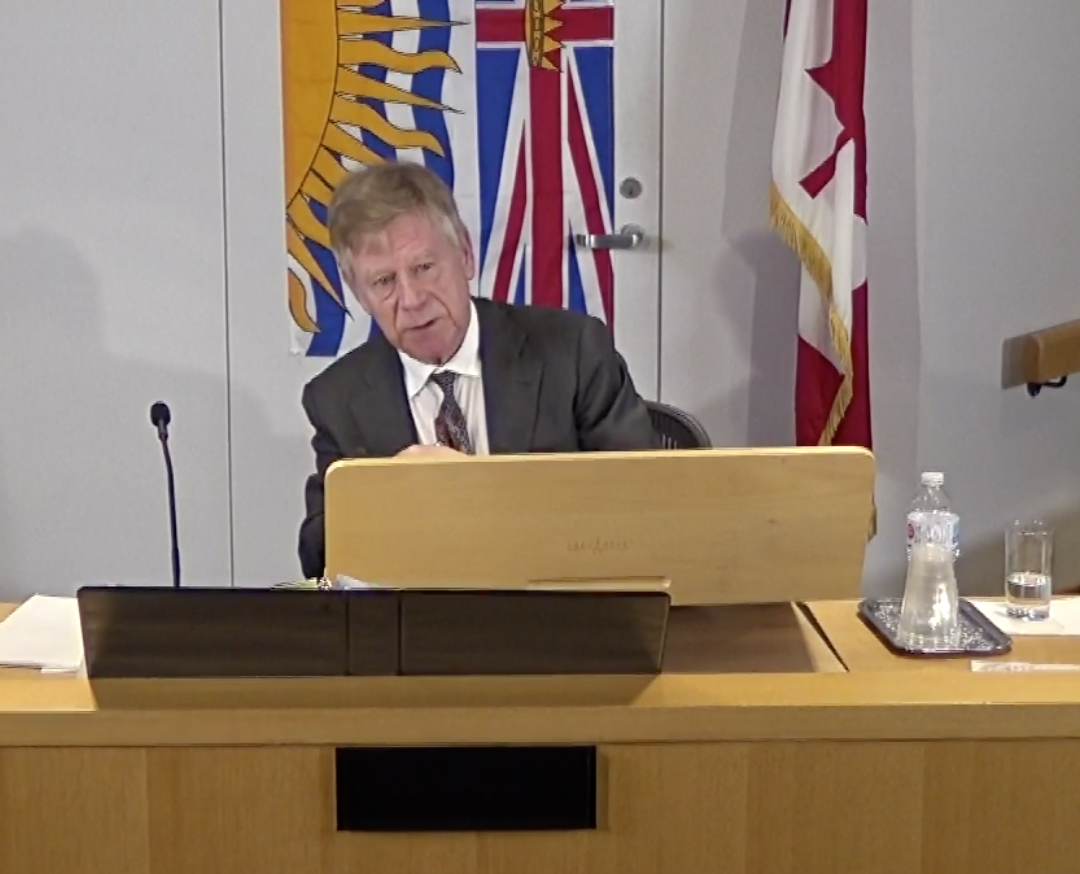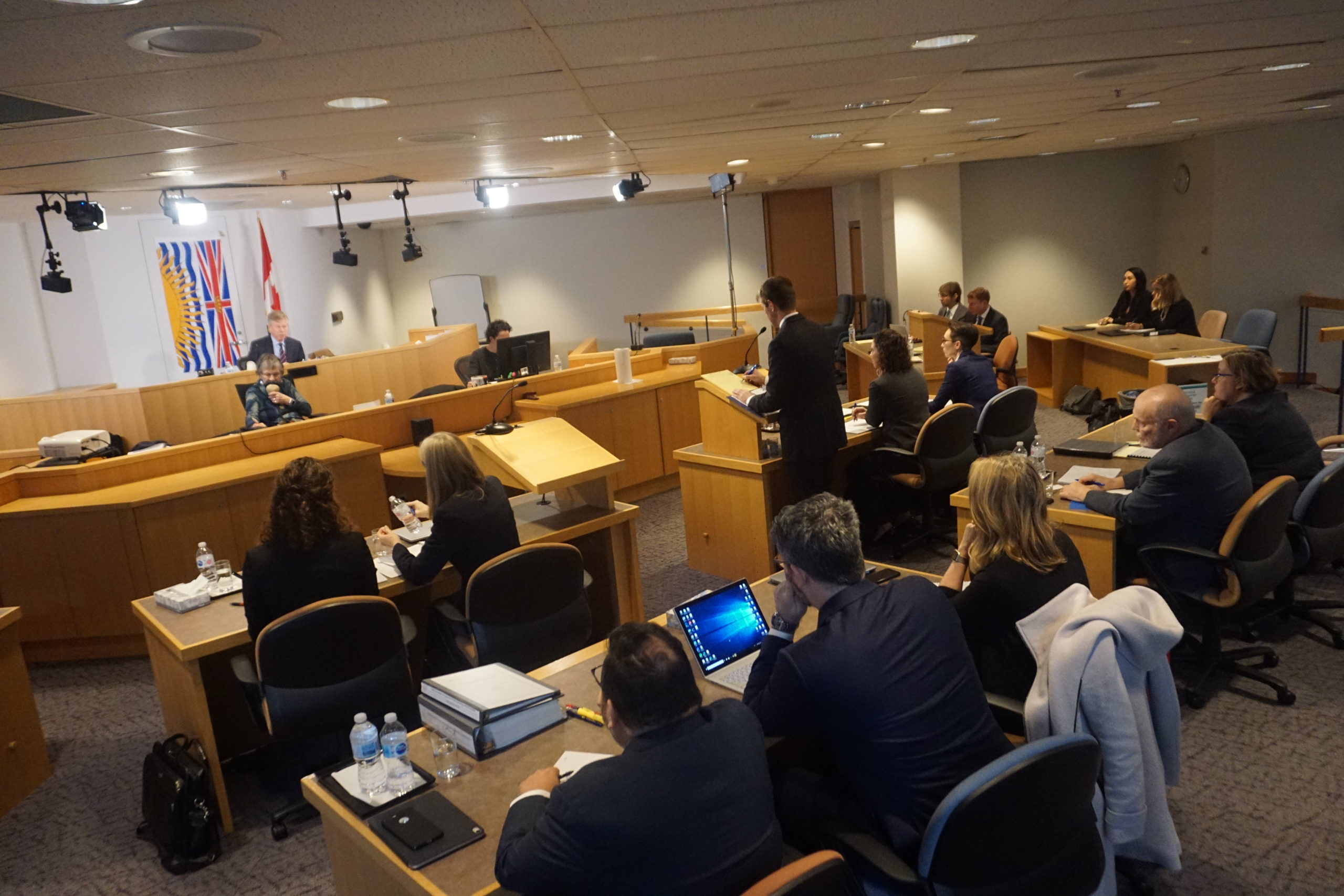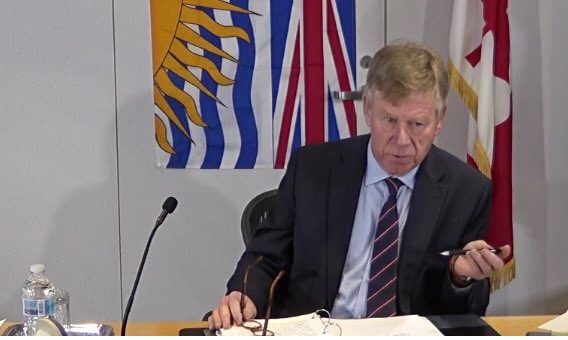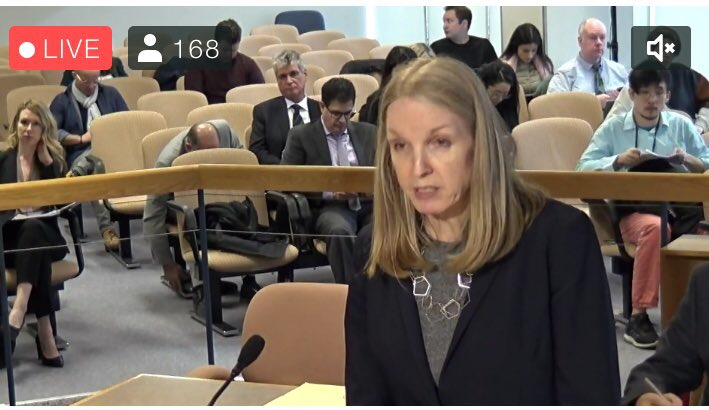Bob Mackin (with files from Ben Miljure of CTV News Vancouver)
Some of the seeds were sown at an Ottawa conference in February 2019 for the wave of 2020 protests that have blocked streets, bridges, railways, ports and government offices across Canada.

(Twitter/@Canada350org)
PowerShift: Young and Rising was the five-day meeting that brought millennial climate change campaigners together with indigenous rights activists to discuss building a movement against capitalism and colonialism, and to learn civil disobedience methods, including blockades. The goal: to stop oil and gas pipeline expansion.
Kanahus Manuel, of the Secwepemc Nation in British Columbia’s interior, was a keynote speaker on the opening night of the conference on Feb. 14, 2019 and delivered a prophetic message.
“Native people could shut this whole country down because all the transportation corridors go through our reserves and territories,” Manuel said in a video that was Tweeted by 350.org Canada on the first anniversary. “The pipelines are transportation, it’s always been about these transportation corridors to get stolen goods off our lands, from point A to point B.”
The next day, an upside down Canada flag, with “Shut Down Canada” scrawled upon it, was draped over the head table during PowerShift panel discussions at an Ottawa church.
The event was already scheduled before the RCMP raided a long-standing blockade on Wet’suwet’en Territory in early January 2019, to allow Coastal GasLink to build the $6.2 billion pipeline that is supposed to feed the massive LNG Canada plant in Kitimat by 2025.
The RCMP’s enforcement of a new court order in 2020 sparked the unprecedented wave of protests nationwide, in urban and rural areas, under the hashtag #ShutDownCanada.
Federal and B.C. ministers reached an agreement with the hereditary chiefs to resolve a long-standing land title dispute on the weekend. The hereditary chiefs’ opposition to the pipeline remains, although the elected Wet’suwet’en council supports the project. On March 4, students at various universities walked out of class and held small-scale protests.
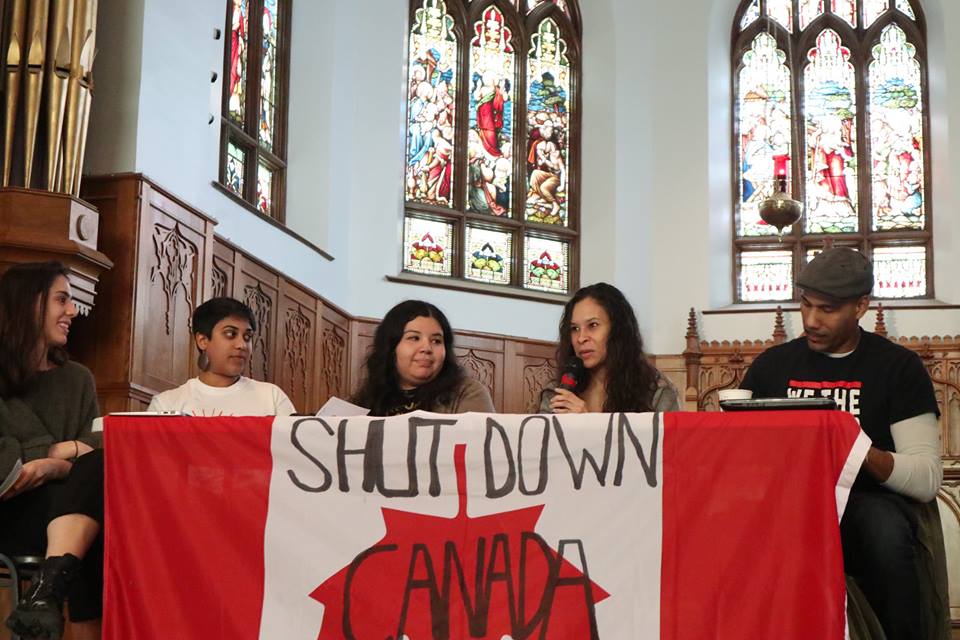
(Powershift/Facebook)
“This particular protest over the LNG pipeline on Wet’suwet’en territory is an opportunity that came up, I don’t think they were planning for this in particular,” said David Tindall, a University of B.C. sociology professor who studies environmental protests.
“But they were planning for things around oil and gas pipelines, possibly more stuff around the Trans Mountain pipeline expansion or the oil sands.”
In an interview with CTV News Vancouver reporter Ben Miljure, keynote speaker Manuel said she found PowerShift useful to attend.
“It’s really important to connect with all the young people, the ones that are active on the front lines out there in Canada for our environment, for climate change and for Indigenous sovereignty,” Manuel said. “I went there and met with a lot of amazing organizers and young people from across the country.”
The PowerShift conference program said the non-violent direct action panels would discuss theory and history of social movements of the past, but also prepare for the future.
“It’ll explore tactics like civil disobedience and frontline land defence. Sessions will prepare participants to deploy direct actions by coaching people on action design, legal and security considerations, and more,” the program said. “Tactics explored will include everything from scouting to highly technical actions like blockades and climbing.”
PowerShift 2019 sponsors included non-government organizations such as David Suzuki Foundation, Greenpeace, Wilderness Committee, Sierra Club Canada and Council of Canadians. The Canadian Union of Postal Workers, National Union of Public and General Employees and Unifor were also sponsors. A Unifor representative, who was not authorized to be quoted, confirmed that Canada’s largest private sector union donated $5,000 to the conference. Unifor did not send delegates or participate in discussions at the conference.
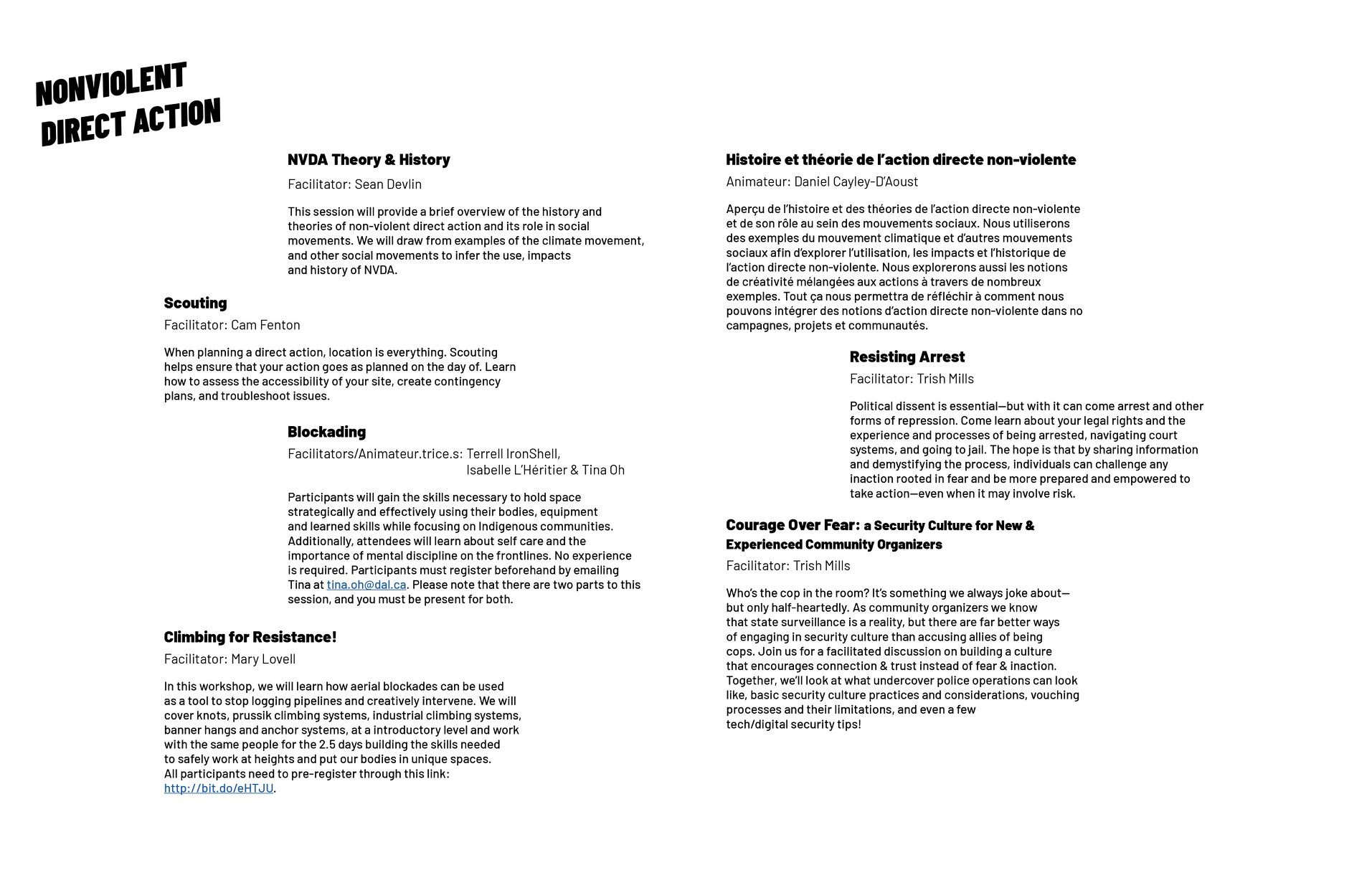
From the PowerShift program section on civil disobedience, including how to blockade and resist arrest.
Manuel wasn’t the only participant from B.C. Mary Lovell, now of the Sierra Club, Torrance Coste and Peter McCartney of the Wilderness Committee, No One Is Illegal’s Harsha Walia (now with the B.C. Civil Liberties Association) and Cedar George-Parker of the Tsleil-Waututh Nation were some of the others.
McCartney said in an interview that he attended PowerShift for the fourth time and offered attendees advice on dealing with the media. He downplayed PowerShift 2019’s influence on the events that have unfolded in 2020.
“It’s a conference for activists, some folks came there to learn about media, some folks came there to learn about how to run for election, some folks came there to learn about non violent direct action,” McCartney said. “In terms of links to what we’re seeing now, it just exists in the same space, kind of at the nexus of climate and indigenous rights, that movement is the same.”
McCartney said there was a bigger effort at 2019’s PowerShift to involve indigenous allies than at previous conferences.
One of the main sponsors of PowerShift was the Canadian arm of Washington, D.C.-headquartered 350.org. Six activists, including Canadian team leader Cam Fenton and digital campaigner Atiya Jaffar, are listed in the program.
A year after PowerShift, Jaffar used social media platforms to promote the blockades at the Port of Vancouver, Deltaport, the Granville Bride and on CP Rail tracks in East Vancouver, as well as the sit-in at David Eby’s riding office in Point Grey.
Fenton was scheduled to conduct a forum at PowerShift on location scouting for protests, but he said by email that it was cancelled.
Fenton declined an interview request, but said he could respond to questions sent by email.
theBreaker.news provided Fenton with questions about 350.org’s sponsorship of PowerShift, its involvement in Shut Down Canada and 350.org’s fundraising activities, including a request for the names of its biggest donors and their dollar amounts.
Fenton, on behalf of the organization, declined to answer the questions emailed to him.

(Twitter/350canada)
In February, 350.org Canada’s Twitter account promoted the Shut Down Canada protests with a link to an online map showing each one and it reposted a clip of the climax of Manuel’s speech on the anniversary of PowerShift.
350.org’s Our Time campaign team staged a sit-in at the House of Commons, a week after last fall’s federal election, to urge the Canadian government to adopt the Green New Deal. Also in 2019, 350.org was one of several groups involved in the Shut Down D.C. protest in the U.S. capital
A decade ago, founder Bill McKibben described 350.org as a “scruffy little outfit.” It has grown into a major international force in the movement against climate change. The most-recent annual report, for the year ended Sept. 30, 2018, uses different words, calling 350.org a “dynamic and highly collaborative climate change campaign, building a global grassroots movement to solve the climate crisis.”
“To a certain extent they can be seen as the core of the climate change movement, and there’s a number of key 350 organizers, activists that have quite a high profile in a number of protests especially with the Trans Mountain pipeline,” said UBC’s Tindall.
McCartney called 350.org “friends of ours” who work together on a lot of campaigns.
“They have the campaigns they’re coordinating on, and we have the campaigns we’re coordinating on and if we happen to be working on the same thing, then we make sure we know what each other are up to,” he said.
350.org grossed more than $19 million in grants and contributions for the year-ended Sept. 30, 2018. Main expenses in that fiscal year were $10.5 million for field organizing, $1.4 million for communications and $1.27 million for digital campaigns. For its activities outside the United States, it reported $527,671 for Canada and Mexico.

Tweets from Atiya Jaffar, a digital campaigner since 2015 with 350.org.
The 350.org website contains a long list of foundations that support the charity, but it does not show any dollar amounts from those donations.
The annual report stated that, as of Sept. 30, 2018, 88% of grants and contributions receivable were due from three donors who were not identified. The names of six major donors, ranging from $450,000 to $4 million, were not disclosed in 350.org’s tax filing with the U.S. government.
Pro-industry researcher Vivian Krause and the Canadian Energy Centre, an arm of the conservative Alberta government, have both highlighted 350.org’s opacity and its ties to the likes of the Rockefeller Brothers. The Rockefeller Brothers Fund website lists a $200,000 grant to 350.org dated Oct. 30, 2019.
Tindall, however, said the issue of foreign funding is irrelevant, because the proponents for major resource projects tend to have foreign investors themselves. The $19 million in donations collected by 350.org pales in comparison to the $338.4 billion in 2018 revenue that flowed to Royal Dutch Shell, the biggest partner in the LNG Canada project.
“The industry groups have millions and millions, if not billions, of dollars in foreign funding. Most of the companies operating in the oil sands have foreign funding,” Tindall said.
Some of that money is spent on advertising and public relations targeted at the public, on lobbying politicians and on supporting think tanks. Environmental issues, Tindall said, are international issues that know no borders.
“Way more funding comes from the multinationals [in oil and gas] to try and influence environmental politics in Canada,” Tindall said.
Support theBreaker.news for as low as $2 a month on Patreon. Find out how. Click here.
Bob Mackin (with files from Ben Miljure
